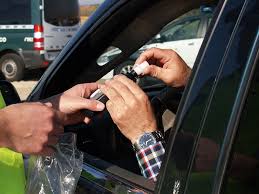
When police suspect a person of DUI, there are field tests they can perform to see if their suspicions are correct. Beyond that, they also have breathalyzer tests that can confirm a person has been drinking by measuring their blood alcohol content. In some states, it is a crime to refuse to take a breathalyzer test.
The Supreme Court has doubts as to the legality of some laws in a dozen states that make it a crime for people suspected of DUI to refuse to take tests to determine their blood-alcohol level.
On Wednesday, the Supreme Court justices heard arguments in three cases. The cases are challenging laws in Minnesota and North Dakota that make it a crime to refuse to take either blood, breath, or urine alcohol tests without first being issued a warrant.
Those who have been prosecuted under these laws claim that it violates the Constitutions ban against unlawful search and seizure. Previously, the state supreme courts had upheld the laws.
In the hearing, the judges asked the lawyers representing the states why they cannot simply require the police officer to get a warrant every time the police want a person to take an alcohol test. One justice cited statistics that it takes an average of only 5 minutes to get a warrant over the phone in Wyoming and only 15 minutes in Montana.
Justice Anthony Kennedy stated that the states are asking for an “extraordinary exception” by asking citizens not to assert their constitutional rights against search and seizure. He was also frustrated by state lawyers refusal to answer questions about why expedited warrants wouldn’t serve the state just as well.
A county prosecutor representing Minnesota said that a person could still refuse to comply with the warrant and face a lesser charge of obstructing a warrant.
Some justices seemed to be seeking middle ground. Justice Elena Kagan asked one of the attorneys representing the states, “Why can’t we just say that with respect to a breath test that this is a search incident to arrest?” She insisted that a breath test was noninvasive.
The lawyer representing the challenges to the laws saw otherwise, insisting that a breath test was invasive.
In North Dakota, refusing to take an alcohol test carries the same penalty as a DUI charge.
Other states that have laws making it a crime to refuse an alcohol blood test are: Alaska, Florida, Hawaii, Kansas, Louisiana, Nebraska, Rhode Island, Tennessee, Vermont and Virginia.
If you have been charged with DUI, you will need representation. Our attorneys specialize in criminal DUI matters. Contact us today.



